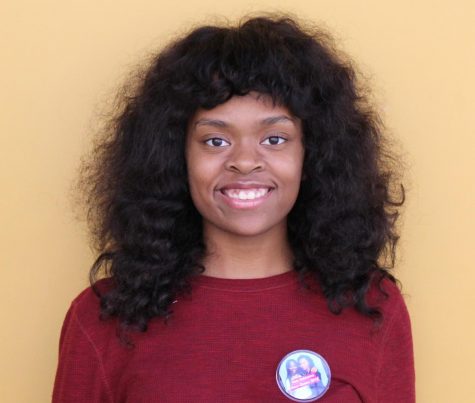Stereotypes in school negatively affect students
February 28, 2018
According to Webster, stereotypes are standardized mental pictures that are held in common by members of a group that represents an oversimplified opinion, prejudiced attitude, or uncritical judgment. These stereotypes can be negative, demeaning, and can deeply affect the actions of those being racially, ethnically, or sexually stereotyped.
Black students in Omaha Public, and private schools expressed how bias and stereotypes can negatively affect their high school experiences and how they carry themselves in their places of education.
Angelo Brown, Omaha Westside Senior, does not let the negative comments and actions that come from his peers get him distracted or out of character.
“While going to Westside, I don’t feel as if I have been discriminated against or stereotyped by any teachers, or any staff in general. People hear about Westside and think that it’s just this school filled with racist, rich, White people, which isn’t the case. All of the staff I have come in contact with while going to Westside have showed me nothing but love and respect. The problem really is with the students.” Brown said.
Brown recounted an incident at school where he and a group of friends “respectfully and quietly” decided to sit for the national anthem but were soon after called racist remarks by members of the Westside Swim Team.
“The situation was brought up to the swim team coach via email, and he did not respond until a second email was sent out two weeks later. When situations like this occur, we are told to contact administration and not act violently. We did everything we were supposed to do and there was still nothing done about the situation,” Brown said.
Brown said he believes more African American Westside staff members would positively alter his school experience because “they would be more understanding about the situations we deal with at school and in the world we live in today in general.”
Nyelah Pommier, North High senior agrees. “I feel like it’s hard when you cant run and talk to a counselor, or you’re having a personal problem that you know sometimes they can’t relate to.”
Pommier also believes that there are stereotypes present in Omaha North and bias shown by some teachers and administrators, based on the general actions of other Black students in the school.
“It hurts knowing that people expect less of me and I try hard but when you know people expect less of you it kind of breaks you emotionally and physically.” Pommier said.
Tyron Foster, Creighton Prep senior, stated that he personally has never been discriminated against, or stereotyped in an extreme sense, but he “feels like the system at prep is not built for a minority, or someone in the underclass.”
“It is not a good feeling knowing that only a
Clarence Whitner, Omaha North junior, also has experienced prejudice within classes and things that he feels are unjust .
“Having more Black teachers in the school would make my school more relatable to me by showing me more examples of successful individuals who look like me, reassuring me that I can also be black and become a successful individual who is taken serious in the professional world.” Whitner said.
To avoid having to deal with racial stereotyping in their places of education, African American students typically lean towards Historically Black Colleges and Universities (HBCU’s) when looking at colleges to continue their education. In 2015, only 22% of students enrolled in an HBCU were non black.
“Looking at colleges, one of the factors I do think about is the amount of students that look like me. Being that I’ve always went to a predominantly white school, it would be nice to experience HBCU life,” Brown said.
“Yes, racial diversity is one of the main things I think about when I look at schools, I want to be looked at as just another student not a spot on a Dalmatian,” Pommier said.


